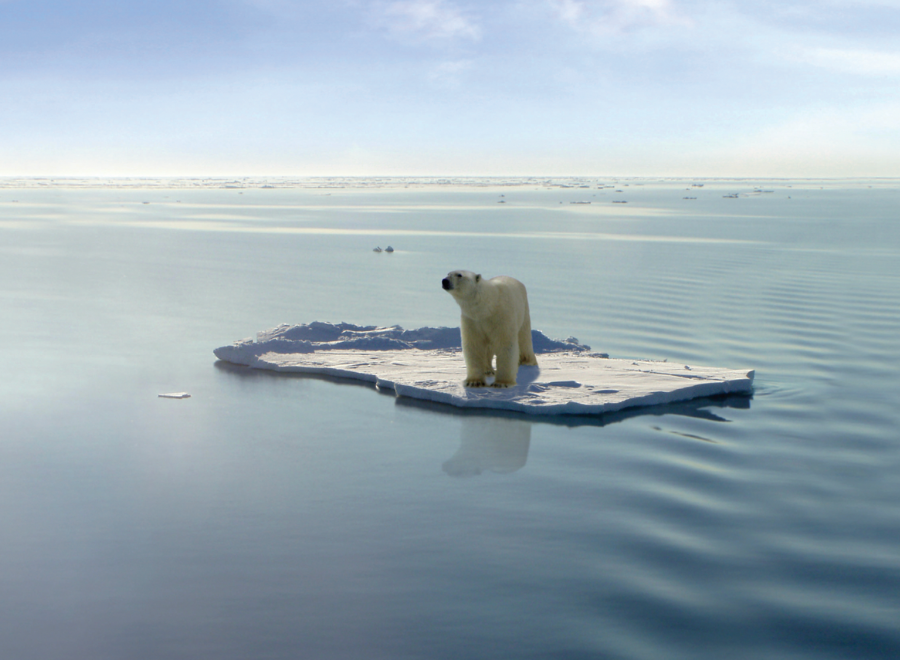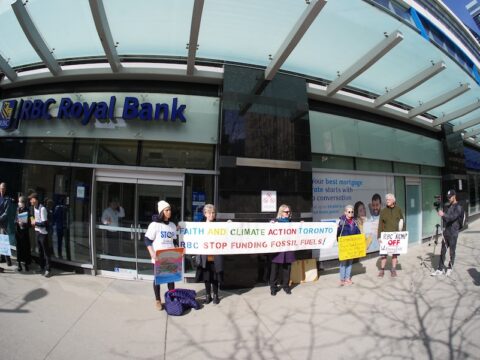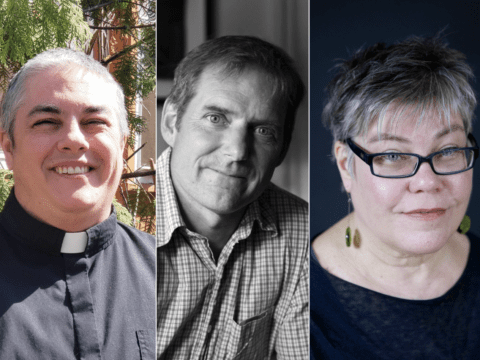The Kyoto Protocol could have and should have reduced the threat of human-induced climate change. It didn’t, and now its initial phase is about to expire. This month in Copenhagen, Denmark, the United Nations is hosting another climate change conference. The goal is to create a new treaty, a successor to Kyoto.
Even though the signs, to many, aren’t positive, we all need to pray that Copenhagen does better. As climate change grows more dire, and the hopes of the world are once again pinned on UN decision-makers, my memories go back 12 years to that now-famous gathering in Kyoto, Japan.
You may unsubscribe from any of our newsletters at any time.
At 3 a.m. on Dec. 11, 1997, 12 hours past the planned adjournment time and after two weeks of conflict-ridden negotiations, the chair brought down his gavel. The Kyoto Protocol was a done deal. For the first time, the major polluting countries of the industrialized world had agreed to specific targets for reducing their greenhouse gas emissions, which contribute to human-induced climate change.
By that point, I was pretty bleary-eyed. As co-ordinator of the World Council of Churches’ climate change program, I had not only been monitoring the 18-hour daily negotiations over the two weeks but also was the facilitator of our WCC delegation of representatives from around the world and one of the organizers of the numerous multi-faith events that we sponsored with Buddhist, Shinto, Christian and other religious partners in Japan.
The applause that erupted in the cavernous Kyoto Convention Centre at 3 a.m. was infections. I think everyone, though sleep deprived, felt at that moment some real hope for the Earth, whether they were a UN official, a government negotiator, a journalist or one of the hundreds of representatives of non-governmental organizations, businesses and faith communities.
I’m retired and no longer co-ordinate the United Church’s environment and energy activities nor head up the WCC’s climate change program. So I won’t be going to Copenhagen to participate in this December’s crucial negotiations. But the World Council of Churches will be there in force. The churches’ message is that securing a forceful treaty that can reduce the threat of climate change is urgent, made even more so by the failure of most wealthy nations to live up to their Kyoto commitments.
From the very beginning of the churches’ work on climate change, we grounded our education and advocacy in the recognition that climate change is an issue of justice. Historically, rich nations have contributed far more to the problem than have poor nations. Further, poor countries will suffer more from the consequences of climate change largely because they lack the resources to help protect themselves and to adapt.
When the UN climate summit was held in 2003 in New Delhi, India, Nafisa D’Souza, an Indian member of the WCC’s Working Group on Climate Change, organized a parallel conference of impoverished peoples from across the country. It was heart wrenching to listen to their testimonies of how climate change was already impacting their lives.
I’ve been encouraged over the years at how well the justice perspective has been acknowledged in the church. Ever since the early days of workshops in church basements, people seemed to understand instinctively when we talked about climate change as having major ethical dimensions.
The UN Climate Change Secretariat at the 1997 Kyoto Climate Summit asked me to address the plenary. I remember sitting up late into the night in my room preparing. I focused on the justice theme, arguing that “justice means being held responsible for one’s actions…justice means being held accountable for promises you make…justice means being held responsible or the suffering you cause to others…justice means an equitable sharing of the Earth’s resources.”
Canada has failed in the global court of justice. The Canadian government agreed in Kyoto to reduce our domestic emissions of greenhouse gases by six percent from 1990 levels by the end of the first phase of the Kyoto Protocol in 2012. Since then, Canadian emissions have skyrocketed to about 30 percent higher than they were in 1990.
I’ve participated in many consultations in which representatives from various industries have argued that taking dramatic action to tackle climate change would devastate Canada’s economy. But other industrialized countries, especially in Europe, have shown that substantial emission reductions are possible. Technical reports from Canadian organizations such as the Pembina Institute and the David Suzuki Foundation demonstrate that Canada can reduce emissions without sacrificing sustainable economic development.
Another issue in Copenhagen will be whether large developing countries such as China, India, Brazil, South Africa and Mexico should be required to take on mandatory emission reduction targets like the industrialized nations. Here again the justice issue has bearing. On that last night of intense negotiations in Kyoto, I remember the head of the Indian delegation making the forceful argument that there is a big difference between the “luxury emissions” of the wealthy nations and the “survival emissions” of the poorer nations.
The majority of people in developing nations still live in abject poverty. These countries need to have the capacity to help raise their people’s standard of living and provide the basic necessities of life.
The developing nations make a good case when they ask why they should take on mandatory targets when many of the richer industrialized countries have so far failed to meet even the modest goals that they agreed to in Kyoto.
Many Canadians seem prepared to make changes in their lifestyles. My experience is that people are open to asking the question, “What is enough?” I sense that the current tough economic times have not diminished this reflection. If anything, I see an accelerated shift of people’s priorities away from consumerism and toward investments in relationships, community and nature.
Every country, whether rich or poor, can make a positive contribution to addressing climate change, and many developing nations are doing so already. Indeed, China and India are among the global leaders in renewable energy research and development.
The WCC Working Group on Climate Change that I facilitated for many years has always been a great forum for groundbreaking theological and conceptual analysis. In recent years, we have been working with environment and development organizations to explore concepts for addressing climate change in the context of global poverty. One such concept is called “greenhouse development rights” and proposes strategies for simultaneously addressing the climate change challenge and the development challenge.
A third issue that will figure prominently in Copenhagen is adaptation. Viewed from the justice perspective, wealthier societies, which bear the primary blame for precipitating human-induced climate change, have a moral responsibility to help the poorer nations adapt to the already-occurring and anticipated impacts of climate change.
Jesse Mugambi, a former professor of religion at the University of Nairobi in Kenya, has been a long-term member of the WCC Working Group on Climate Change. In a recent email to me, he cited some of the impacts that Kenya is already experiencing. Drought is interspersed with devastating storms and floods. Ice caps on Mount Kenya and Mount Kilimanjaro that have existed for centuries are now disappearing, thus eliminating the vital supply of water for agriculture, urban areas and hydroelectricity. “Global warming for us is not a theoretical issue for debate,” he wrote.
We should all pray that Copenhagen is a justice summit where the global community takes big steps to make up for the inadequate implementation of the Kyoto Protocol and to commit to much more aggressive strategies for dealing with the causes and impacts of climate change. It can be done, and the values and ethics that we bring as communities of faith are indispensable ingredients to a long-term solution.
***
This story first appeared in The United Church Observer’s December 2009 issue with the title “Kyoto’s ghost.”













